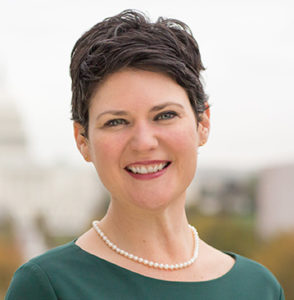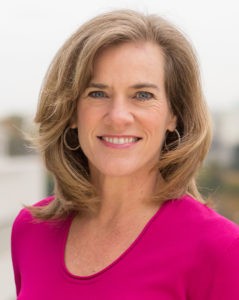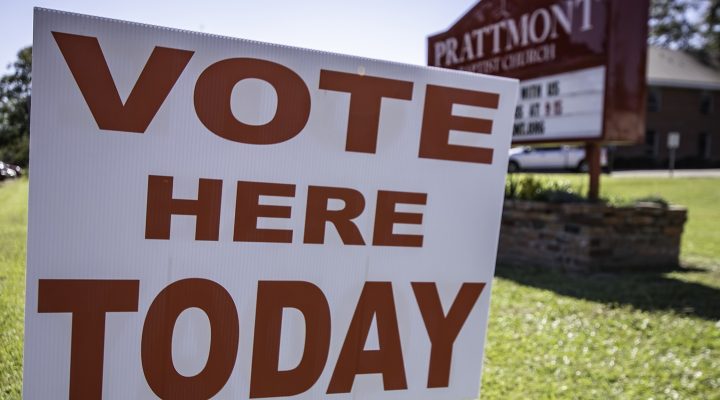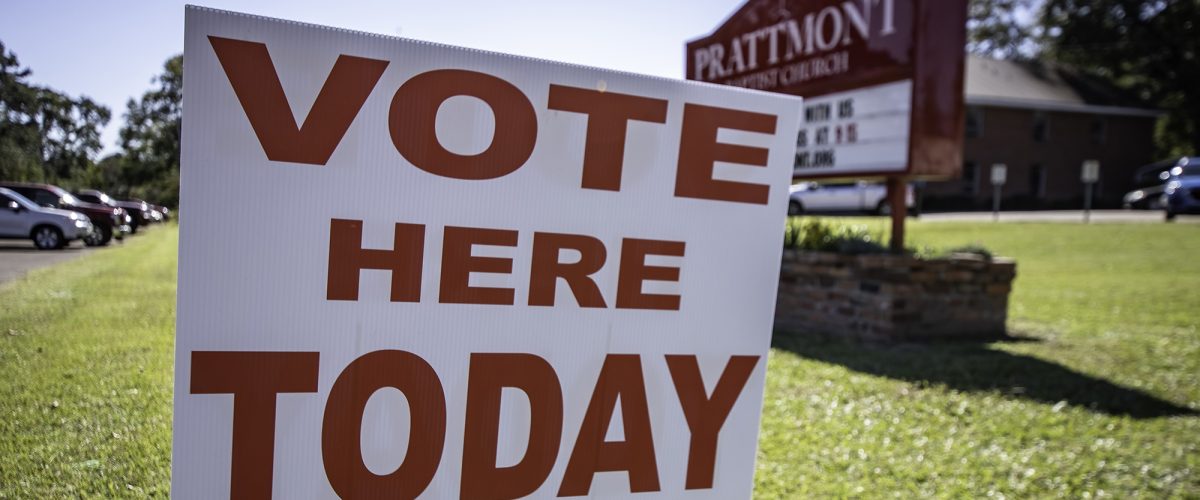Even in the midst of a highly charged 2020 election cycle, most American houses of worship have protected their tax-exempt status by avoiding candidate endorsements and direct involvement in political campaigns, said Amanda Tyler, executive director of Baptist Joint Committee for Religious Liberty.

Amanda Tyler
But those ministers and congregations that have crossed the line imposed by their 501(c)(3) designations often have done so in spectacular fashion and in ways that illustrate Christian nationalism’s threat to democracy, Tyler said in a recent episode of the BJC “Respecting Religion” podcast.
“One prominent example of this is one particularly loud Tennessee pastor, Greg Locke. At church on a (May) weekend he said, ‘If you vote Democrat, I don’t even want you around this church. You can get out,’” she said. “I’ve been in a lot of churches in my day, and I have never had a pastor encourage people to get out of the church, and certainly not for how they vote in an election. This is not good behavior for your tax status, it’s also not good behavior as a pastor.”
Locke’s action was a clear violation of the Johnson Amendment, a 1954 law that bars nonprofits, including churches, from endorsing candidates for political office or participating in political campaigns, Tyler explained.
She also welcomed subsequent reports that Locke dissolved the 501(c)(3) status of his Global Vision Church. “This is good news because now he’s free to say what he wants but he has to give up his tax-exempt status. He said he would start a PAC, which is more in line” with his actions.

Holly Hollman
Tyler was joined on the podcast by Holly Hollman, BJC general counsel and associate executive director. Together, they described the threat Christian nationalism poses to American democracy through electoral politics and provided guidance for churches concerned about the legal line between partisanship and participation in the public square.
They also noted that Christian nationalism’s challenge to the separation of church and state isn’t emanating only from far-right religious groups, but also from like-minded politicians and parties seeking their support.
Tyler cited Pennsylvania State Sen. Douglas Mastriano, who won Pennsylvania’s 2022 Republican gubernatorial nomination, and Kandiss Taylor Show, whose “Jesus, Guns and Babies” campaign for governor fell short in Georgia’s May primary.
“What a slogan, right?” Tyler said.
“It’s an example of this terrible problem that we must face — Christian nationalism,” Hollman said. “Some people who have the microphone out there in the public square are equating Christianity and a particular partisan platform that they say cannot be separated.”
Hollman added that it’s not enough to be aware of the challenge. “We have work to do. We need to get out there, learn about these issues and speak out where Christian nationalism threatens our religious freedom and our way of life.”
The attacks have been coming steadily since 2017 when the Trump administration sought to kill the Johnson Amendment, Tyler said.
 “Trump criticized the law when he was on the campaign trail and in his first month in office, he promised he would ‘totally destroy’ the Johnson Amendment. And he tried very hard to do that, and he failed in that endeavor,” she said.
“Trump criticized the law when he was on the campaign trail and in his first month in office, he promised he would ‘totally destroy’ the Johnson Amendment. And he tried very hard to do that, and he failed in that endeavor,” she said.
Hollman said the move was an effort to inject more direct Christian support for his presidential bids. “He had pastors say they didn’t want to endorse him and speak out in his favor because they were concerned about getting their churches in trouble. And that was pretty upsetting to candidate Trump and he said, ‘Let’s get rid of this.’”
Conservatives also have launched widespread attacks on voting rights since then, a move that has led to some confusion about the appropriateness of church-led voter registration and voting turnout campaigns, Tyler noted.
“Efforts to encourage voting, to help make voting easier for people, are common for 501(c)(3) organizations, including churches. Those efforts, as long as they are nonpartisan in nature, do not typically raise concerns. So, don’t think your church can’t respond to efforts making it harder to vote or to encourage or help increase voter turnout. Voting itself, and helping people to vote, is not partisan. It is part of responsible civic engagement in our democracy.”
There is legal difference between raising voices on issues and directly supporting a party or candidate, Hollman said. “And it’s OK to educate people about issues and to be involved in civic participation.”
In fact, that kind of engagement is needed to oppose those seeking to blend religion and government, she said. “One thing we know people can do is to become involved. We urge civic participation of all people. We urge people to learn about the issues, to make sure they vote, to get involved in their communities. It’s also important to talk about the role of religion and religious institutions in elections.”
One place to start is through BJC’s Christians Against Christian Nationalism movement, Hollman suggested. “It says that ‘people of all faiths and none have the right and responsibility to engage constructively in the public square.’ Of course, that is saying we are all equal citizens without regard to religion, so don’t be fooled by the Christian nationalism talk that preferences Christians and their legal rights. This is just a core principle of civic engagement … and in no way runs afoul” of the law.
Related articles:
Teach Baptist history and Bible history to debunk Christian nationalism, historians say
Jeffress says he’s not a ‘Christian nationalist’ but America was founded as a ‘Christian nation’
Georgia representative says Christian nationalism actually is a good thing


